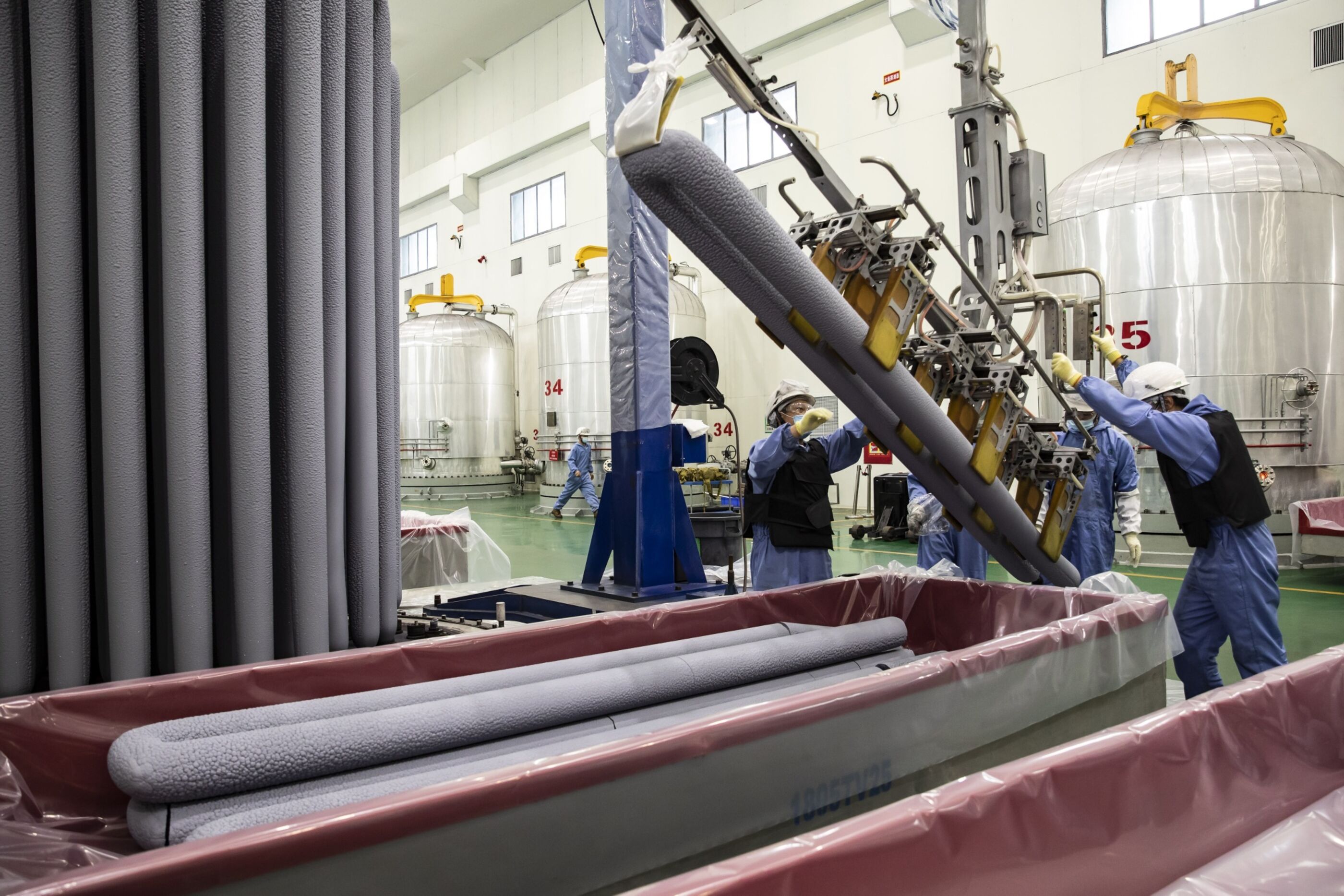At the Daqo New Energy Corp. factory in China’s Xinjiang region, workers carefully processed tall columns of refined silicon last week as a group of reporters and analysts looked on. It’s the first time outsiders were allowed to witness the mundane factory scene since China’s dominant solar industry has come under scrutiny for its labor practices. Unlike three other companies in Xinjiang that produce polysilicon—a key ingredient in solar panels—Daqo hasn’t been linked to alleged human-rights abuses. Yet Daqo has upheld the same secrecy as its peers with ties to the government-run labor program that’s under international scrutiny. As recently as March, the company declined interview requests for its executives and turned away foreign observers.
Daqo’s chief financial officer, Ming Yang, acknowledges there’s a “good probability” that Xinjiang-made polysilicon will be banned by President Joe Biden. As the only U.S.-listed polysilicon company based in Xinjiang, Daqo can’t just ignore concerns from overseas investors and regulators, he said in an interview. “We understand there are these perception risks, especially from the public and media, and some investors,” Yang said.
On Wednesday, U.S. climate envoy John Kerry said officials “believe in some cases” that Chinese solar products are being produced by forced labor and confirmed the administration is mulling restrictions. Daqo’s best bet is to try and win an exemption. Chinese smartphone maker Xiaomi Corp. this month managed to get itself removed from a U.S. blacklist of military-linked companies, suggesting there’s a way for individual companies to avoid penalties even as tensions rise between the world’s two biggest economies.
Concerns about forced labor in Xinjiang stem from a state-run labor program that some Western governments and academics have argued is used to compel mainly Muslim Uyghurs and other minorities to work against their will. Researchers have highlighted public documents showing three other polysilicon factories—not Daqo’s—accepted workers from the program. China says the initiative helps poor ethnic minorities find better employment and that accusations of forced labor in Xinjiang are lies invented by foreign adversaries.
Daqo’s campaign is being spearheaded by Yang, a Taiwan-born, Cornell-educated former McKinsey & Co. consultant who joined the firm in 2015. The night before the tour, the 46-year-old held court for two hours over dinner at a local hotel, sipping Moutai liquor with a group of foreign journalists. A vegetarian, he picked at dishes including tomato and egg soup and cauliflower stir-fry as he set out his case: Daqo doesn’t participate in the labor program and doesn’t employ any Uyghur


